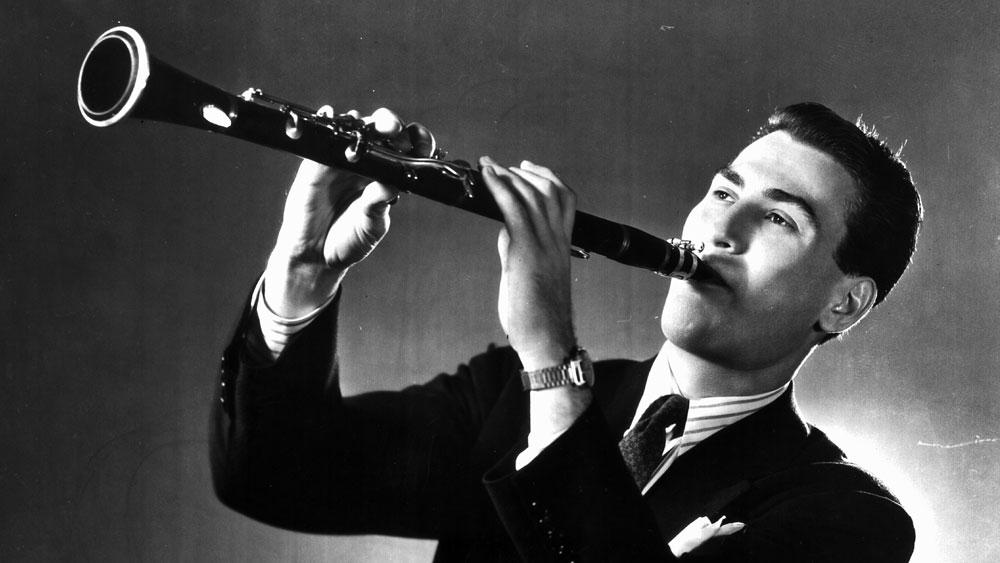News - 4.10.2024
Artie Shaw

Artie Shaw was born in 1910, New York City and is widely regarded as “one of jazz’s finest clarinettists.” A popular and innovative musician, composer, bandleader, actor, author, and larger-than-life musical icon, Shaw’s name became synonymous with the swing era of the 1930s and ‘40s.
Growing up in New Haven, Connecticut, the son of a dressmaker and a photographer, Artie Shaw began his musical career after buying a saxophone at age 13 with money he earned working at the grocery store. At 16, he switched to the clarinet and returned to New York to tour as a jazz musician, turning professional in 1925. During this time, he discovered recordings by Stravinsky and Debussy.
Shaw’s career, like his music, was a whirlwind of innovation and intensity. He valued experimentation and boundary-pushing over dancing and love songs, expressing a distaste for having to play the same pop tunes over and over.
He had a habit of forming bands, developing them to his immediate aspirations, making quick records, and then disbanding. One band briefly included Billie Holiday as vocalist, which was perceived as a controversial decision by Shaw at the time as she was a black woman and much of the US operated under racial discrimination law. Holiday eventually left the band due to hostility from audiences in the segregated Southern U.S.
In 1936, Shaw created a sensation with his Interlude in B-Flat, performed at Broadway’s Imperial Theater to fill a spot between headliners. He signed a recording contract and led his first orchestra in New York’s Lexington Hotel, reaching the height of his career in 1940.
After the U.S. entered World War II in 1941, Shaw enlisted in the Navy and was soon leading a service band throughout the Pacific War Zone, crediting this time as a period of renewed introspection. After his discharge in 1944, he formed another band, his “jazziest” yet, featuring trumpeter Roy Eldridge. He then devoted himself to orchestral musical and toured extensively over the next 10 years, appearing at Carnegie Hall in a performance of Mozart's Clarinet Concerto with Leonard Bernstein and the New York Philharmonic. He continued to record with his big bands and a small group called Gramercy Five.
In the 1950’s, Shaw moved to Spain where he wrote and published fiction, giving up the clarinet and citing his own perfectionism as the reason, saying: “In the world we live in, compulsive perfectionists finish last. I have taken the clarinet as far as anyone can possibly go. To continue playing would be a disservice.”
After a tumultuous career and eight failed marriages, Shaw officially retired from the music business in 1985 and died on December 30, 2004, aged 94. His career can be summed up by a quote in John White’s Artie Shaw: His Life and Music: “He went places on the clarinet that no one had ever been before.”